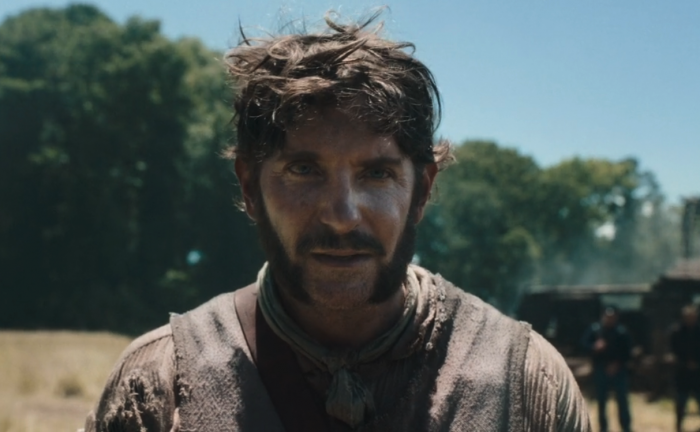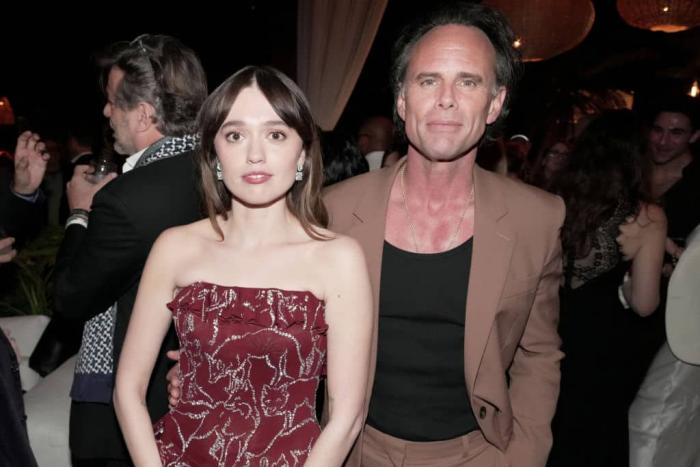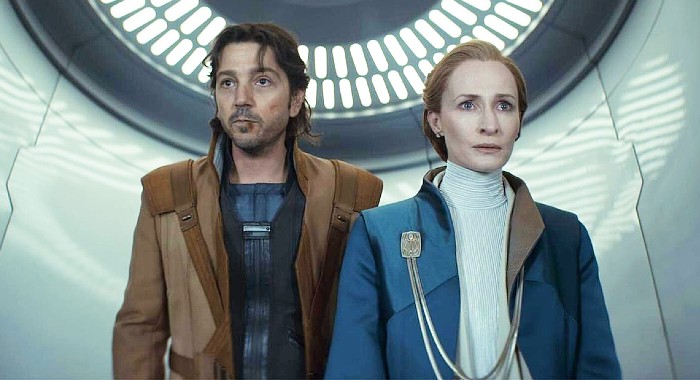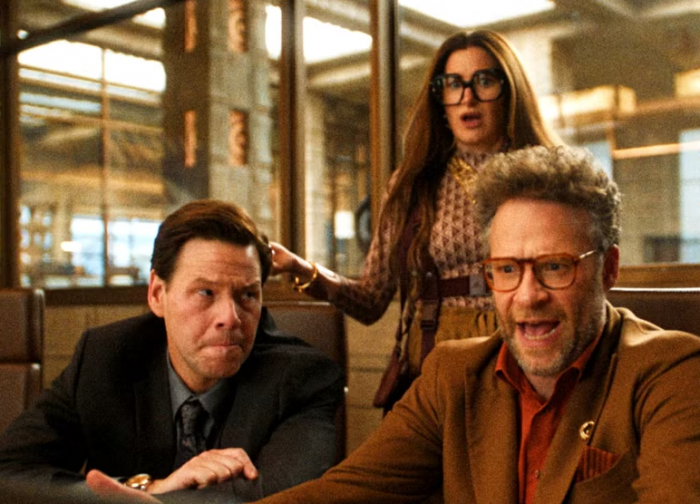
Walton Goggins Was the Secret Weapon of 'The Righteous Gemstones' in a Role That Combined Boyd Crowder and Lee Russell
By Roxana Hadadi | TV | October 18, 2019
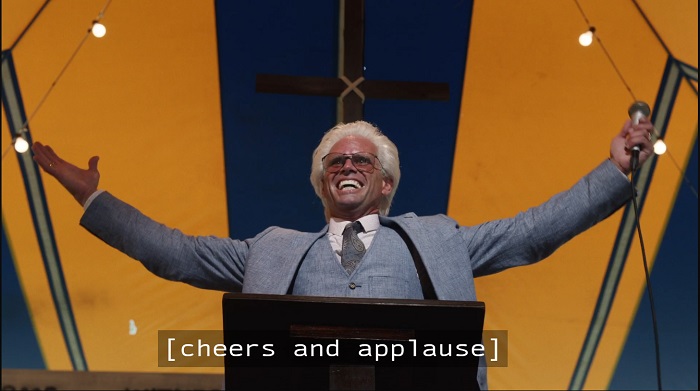
Earlier this summer, after seeing Once Upon a Time … in Hollywood, I posed an important question for which we all demand an answer: Is Quentin Tarantino a Justified superfan? The film is littered with actors from that franchise, except for one notable exception: Walton Goggins, who has even worked with Tarantino before in both Django Unchained and The Hateful Eight. WHY WERE WE BEING PUNISHED?
Now, the rest of the year has shaped up to be a veritable smorgasbord of Goggins content, and for that, I am very grateful. And while The Unicorn on CBS is fine and probably will, as Dustin anticipates, be renewed for a second season, I’m here to praise something else: The extreme self-awareness The Righteous Gemstones exhibits about Goggins’s own mythology as an actor, and how much that cements our interest as viewers.
Did you read Mike’s pieces about The Righteous Gemstones when Danny McBride’s show launched back in August to the highest comedy-premiere numbers HBO had seen in three years? The first season of the show wrapped on Sunday—and HBO had already announced a second-season renewal weeks ago—and much like McBride did on his previous show, Vice Principals, he employs Goggins like the secret weapon he is.
To be fair, the characters of Uncle Baby Billy Freeman in The Righteous Gemstones and Lee Russell in Vice Principals are very different. In the latter show, Goggins played Lee as a conniving, manipulative, foppish asshole whose dandyisms were in stark contrast to his increasing embrace of toxic masculinity. Lee was thoroughly reprehensible, but you low-key rooted for him anyway because Goggins imbued him with brief glimpses of sensitivity and humanity. The character would then do something tinged by racism and over-the-top self-assuredness—honestly, a lot like Boyd Crowder in the early seasons of Justified—but Goggins never half-asses anything, and his dedication sold the bizarre layers of Lee Russell. McBride’s writing style, which often veers between extremes of hyper-aggressive immaturity and brusque fragility, worked perfectly when paired with Goggins’s commitment.
Did you see those dance moves? And those teeth? Good, because both of those aspects of Goggins’s persona come up again in The Righteous Gemstones, in which Goggins plays Uncle Baby Billy Freeman, the brother-in-law of Gemstone patriarch Eli (John Goodman), brother of the deceased Aimee-Leigh (Jennifer Nettles), and uncle of the adult Gemstone children Jesse (McBride), Judy (Edi Patterson), and Kelvin (Adam DeVine).
The Gemstones are all outrageous, blissfully surrounded in ostentatious wealth and varyingly concerned about losing access to power (you could write a whole think piece, in fact, about how Judy and Shiv from Succession are spiritual sisters in stifled ambition and questionable morality, and dammit, I might), but Uncle Baby Billy Freeman isn’t on the inside of that circle. He’s far on the outskirts, living in a rundown shack on his familial land of Freeman’s Gap, and married to a 20something he treats as a servant, Tiffany (Valyn Hall), whom he insists that Jesse, Judy, and Kelvin—all older than her—call Aunt Tiffany. He’s a former child star who has never been as popular as he was when Aimee-Leigh was by his side, and he’s alternately charming, suave, and devilishly mischievous, while also being petty, juvenile, condescending, and crass. Which is to say: He is a perfect character to be played by Walton Goggins.
The Gemstones aren’t good people, but Baby Billy—never just Billy; you must call him by his old stage name, even though the man is clearly past AARP age—in particular is an embodiment of what happens when you internalize all the worst aspects of Southern traditionalism and megachurch Christianity. Tiffany could be his granddaughter, but well, she’s his wife, and we see her act consistently subservient to him at all times. We’re introduced to Baby Billy as Tiffany is bathing him, and she serves as his counterpart in increasingly violent hijinks as the season progresses.
Oh yeah! And they do a lot of sex stuff!

That unerring patriarchy defines his relationship with Judy, too, whom he tries to mold into a new Aimee-Leigh—not because she’s as talented as her mother was, but because Uncle Baby Billy knows he can make money off her name. And when Judy tries to stand up for herself? Her slightest attempt at individuality earns her a devastating rejection from Uncle Baby Billy—harsher in tone, but no different in content, from how her father Eli also underestimates her.
All of this is to say that Uncle Baby Billy is quite profoundly an asshole, but the show pulled off two impressive things with the character in the first season. The first is that although Sunday’s season finale, “Better Is the End of a Thing Than Its Beginning,” offers a somewhat surprising redemption arc for nearly every Gemstone—Eli makes amends with a preacher (Dermot Mulroney) the family fucked over; Jesse joins his son Gideon (Skyler Gisondo) doing mission work in Haiti; Judy apologizes to former fiancé BJ (Tim Baltz), whom she had abused during their relationship; and Kelvin saves his sort-of boyfriend Keefe (Tony Cavalero)—and steps backward from the gung-ho anti-megachurch vibe of the preceding episodes, it does not change who Uncle Baby Billy is. The man is a schemer and a charlatan, and after being struck by lightning, he’s still that guy. He’s out here calling himself the Electric Preacher, selling hand-drawn milieus of what he claims he saw in Heaven, and attracting a tent-revival following of people devoted to his word.


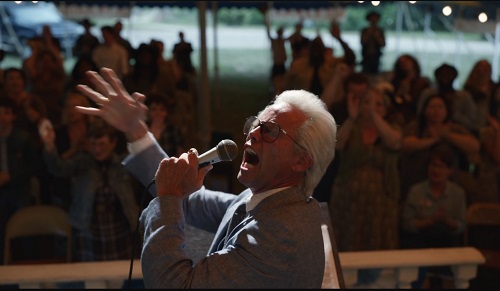
All Uncle Baby Billy has ever wanted is a breathless (and mindless) fanbase, and he gets it—and Tiffany is right by his side, helping in her husband’s con. Not everyone is going to become a better person overnight—and a valid compliant about the finale could be that the Gemstones sure do grow consciences quite quickly—so I’m glad The Righteous Gemstones thankfully doesn’t walk away from the very captivatingly awful person they’ve built in Uncle Baby Billy.
And whether or not Goggins is back for the show’s second season, I remain fascinated by the other thing The Righteous Gemstones does well: Make the Uncle Baby Billy character itself a composite of so many other characteristics we love about Goggins, both as an actor and as a person.
Exhibit A: Those dance moves we see in Vice Principals come up again as Uncle Baby Billy is a prolific clogger, even in his older age.
Exhibit B: A nod to Goggins’s extensive work playing overzealous preachers, from Justified to the indie Them That Follow.
And, most importantly, Exhibit C: THOSE DAMN TEETH. What is the Righteous Gemstones subplot about Tiffany’s teeth—very uneven at first, and then replaced with veneers once the couple steals millions from the Gemstones—if not an acknowledgement of our cultural fascination with Goggins’s own chompers?


Goggins’s teeth are very well-searched on Google, and if you didn’t know about his harrowing tale of losing his front teeth twice, here you go.
I’m convinced that McBride and frequent collaborators Hill and David Gordon Green know all this, know about Goggins’s cult appeal, know which elements of his public persona and acting style appeal to us so much, and leaned into those elements hard to make Uncle Baby Billy a riveting character repellent because of his egoism and empathetic because of his familiarity. The Righteous Gemstones used Goggins perfectly, and I genuinely hope he sticks around on the show because no one else in the world can deliver a song lyric like “Running through the house with a pickle in my mouth” (added by Hill to the song that McBride wrote with costar Patterson and composer Joseph Stephens) as perfectly as he does. No one! The man was born to misbehave.
